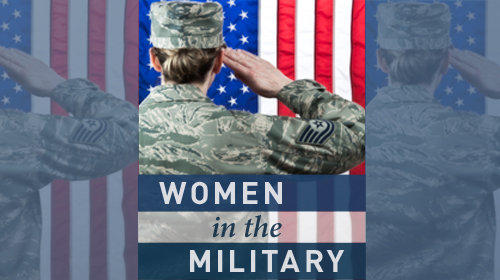
Shannon Morgan was always a good shot, a skill she acquired growing up in rural Arkansas. As a member of a U.S. Army “Lioness” team of women soldiers in Iraq in 2003, she held her own in firefights and went out on patrols with both Army and Marine Infantrymen. Yet, bars the armed services from assigning women to direct ground combat units in most situations, regardless of how well they perform under fire.
Shannon Morgan was always a good shot, a skill she acquired growing up in rural Arkansas. As a member of a U.S. Army “Lioness” team of women soldiers in Iraq in 2003, she held her own in firefights and went out on patrols with both Army and Marine Infantrymen. Yet, official policy bars the armed services from assigning women to direct ground combat units in most situations, regardless of how well they perform under fire. Instead, when commanders want to put talented women soldiers on combat teams, they must do so by temporarily “attaching” them to those units, or sending them in a support role, rather than an official combat role. The result is that women soldiers, like Shannon, went into combat in Iraq with soldiers they hadn’t trained with and barely knew.
In the documentary film , filmmakers Meg McLagan and Daria Sommers document the story of the first group of Lioness soldiers in Iraq. They tell the story of Shannon and her fellow soldiers’ fight against insurgents, as well as their fight to be recognized for their role in history as female combatants. The film’s promotional materials describe the ad-hoc nature of the teams of women assembled to patrol alongside the Infantry: “How did a group of female support soldiers-mechanics, supply clerks and engineers end up fighting alongside the Marines in some of the bloodiest counterinsurgency battles of the Iraq war?”
The film vividly illustrates the danger that can result when official policy forbids commanders from assigning women soldiers to the combat units with which they will be fighting. Shannon explained that Army soldiers like her had a different code than Marines did to signal to each other that the unit was abandoning a certain location. At one point, in the middle of a firefight with insurgents, Shannon looked around and realized that the Marines she was with had evacuated the street, without her realizing it – the Marines hadn’t used the Army code she was used to. Fortunately, Shannon made it to safety.
Despite the experience of the Lioness teams and other teams of women who work with the Infantry in Iraq and Afghanistan, such as the in Afghanistan, women soldiers and Marines are still barred from being assigned to direct ground combat units below the battalion level.
This Thursday, I will be joining the filmmakers of Lioness at a screening of the film as part of the festival. I hope the screening provides an opportunity for other servicewomen who have served on teams like the Lioness teams to add their voices and tell their own stories. The more the public and policymakers recognize the gap between what the combat exclusion policy says on paper and the combat service that women have been performing in reality, the sooner this outdated and dangerous policy will be eliminated.
We'd like to hear your story if you have served in combat, or if you want to serve in a combat arms unit or attend a combat arms school or training program. Please contact us at (212) 519-7858 or womensrights@aclu.org.
Learn more about combat exclusion: Sign up for breaking news alerts, , and .

